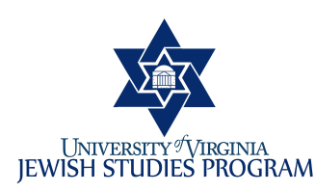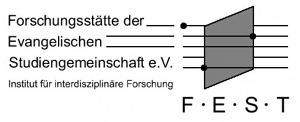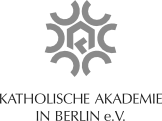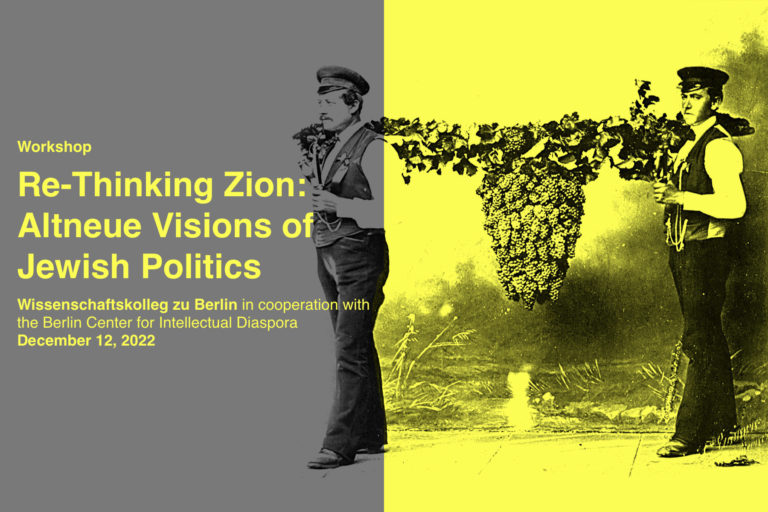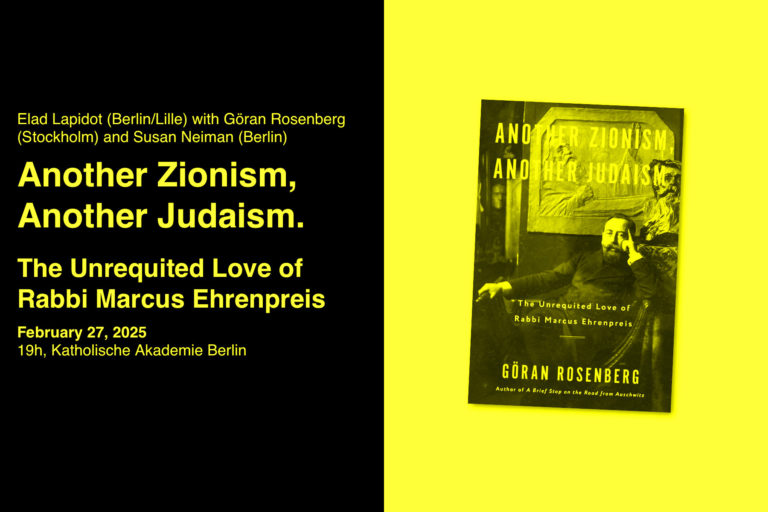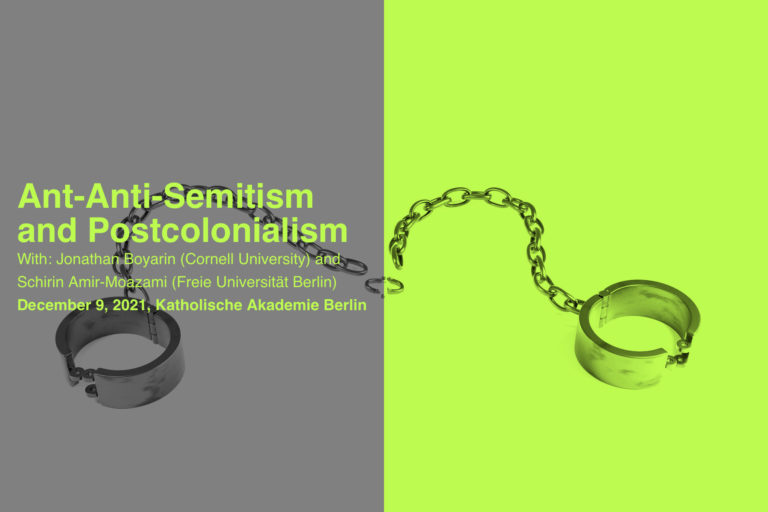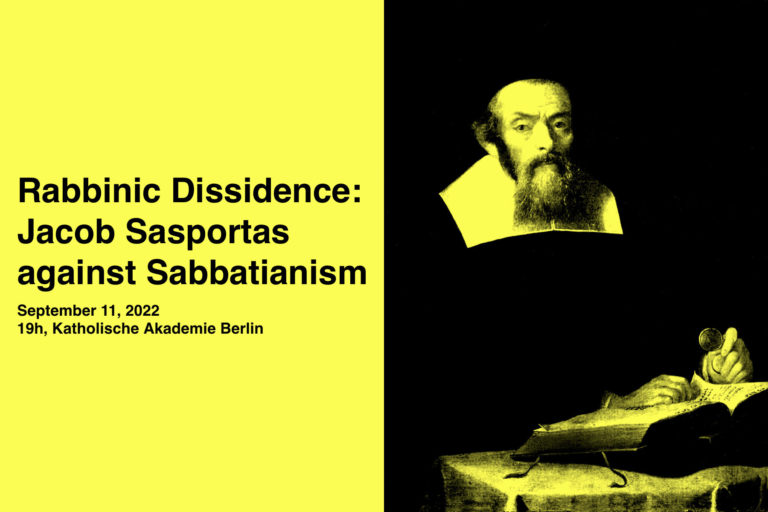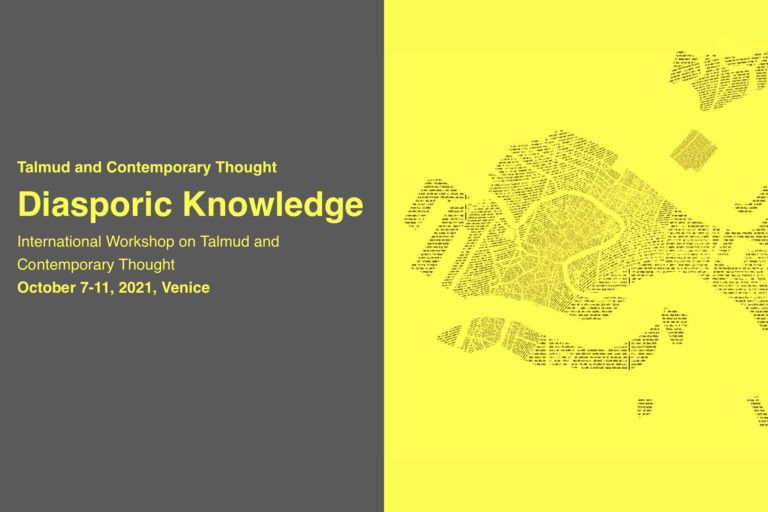Transatlantic Workshop Series “Religion and the Cultures of Democracy
Community & Critique
A cooperative project between the University of Virginia Forum on Democracy, the Catholic Academy of Berlin and the Protestant Institute for Interdisciplinary Research ‘FEST’, Heidelberg
October 1–5, 2023
Community & Critique
Transatlantic Workshop Series “Religion and the Cultures of Democracy
Democratic societies are currently facing a situation that has been described as a ‘crisis of representation’ or even as ‘post-democracy’. The self-image of Western societies characterized by the idea of democratic participation of their citizens in the political shaping of the community is being put to the test by a growing disenchantment with politics. Political disenchantment manifests itself not only in a political abstention from tried and tested procedures of co-determination, but also in a questionable interaction between a loss of willingness to engage in discursive understanding of controversial issues on the one hand, and an emotion-driven polarization of political opinions, on the other. The cohesive power of the public sphere as a place of mutual recognition in the exchange of perspectives, expectations, and convictions based on a consciousness of civic commonality seems to be diminishing. Responding to this loss of cohesion the project ‘Religion and the Culture of Democracy’ seeks to analyze the role of religious communities in the culture of democratic societies within and beyond the so-called West.
The project ‘Religion and the Culture of Democracy’ is based on the hypothesis that the ‘post-democratic’ developments are essentially due to a condensing atmosphere of distrust, which increasingly permeates the civic interaction of citizens in at least four dimensions: a) distrust between scientific elites or science-based economic functionaries and the population, b) distrust between ethno-cultural groupings, c) distrust between social classes, and d) distrust between information elites or networks and information users or recipients.
The first part of our initiative, Figures of Authority: People – Texts – Traditions, successfully took place at the Catholic Academy Berlin from May 15-20, 2022. The second part of our program, Community & Critique, will take place at the University of Virginia from October 1-5, 2023. Below is a brief thematic overview of fall 2023 workshop: Community & Critique
The loss of cohesion in the democratic public sphere challenges the preconditions of trust in governance and representation in general. Therefore, the first part of the Transatlantic Workshop series “Religion and the Cultures of Democracy” re-evaluates the concept of authority, which Max Weber defined as the ability to achieve voluntary allegiance – that is to speak as the source of successful and legitimate rule. Under the title “Figures of Authority” the Winter school – that had to be postponed to spring 2022 due to the corona-pandemic – dealt with the ambivalent situation that on the one hand a crisis of authority is encountered in social as well as in ecclesiastical life, but on the other hand a new and frequently disconcerting desire for authority has experienced a remarkable renaissance in public debates and in political life. Whereas the goal of the spring school “Figures of Authority” lay in recovering the concept of authority as a key issue for understanding the political-cultural-religious situation of the present, the subsequent fall school “Community & Critique” will mainly focus on the concept of community, its many-faceted role for the democratic society and the impact of individual religiosity as well as ecclesiastically and denominationally institutionalized religion for the structure, organization and appearance of communal life in democratic societies around the world.
The internal cohesion of communities is based on shared epistemic and evaluative horizons among its members. Communities are based on comprehensive worldviews that do not strictly differentiate between facts and values. To belong to a community is to see the world through the lenses of this community, it means following its commonly accepted patterns of interpretation that promote orientation for world- and self-understanding. But the seemingly homogenous and self-contained structure of communities simplifies its internal reality as well as its relation to its environment in modern societies. Whereas shared epistemic and evaluative horizons certainly belong to the sources of communal life, communities are problematic for at least the following three reasons: firstly, internal cohesion may easily turn into coercion when members of a communal body deviate from standard patterns of reciprocal acceptance, and to prevent this tendency communities need to establish procedures of contestation and negotiation that allow for a flexible synthesis of integration and deviation; secondly, even where internal cohesion is uncontested, each inclusion correlates to an exclusion of others that do not belong to the community in question, therefore communities are prone to misunderstanding, disrespect and violence against its environment; thirdly, modern societies are characterized by a high degree of diversity, hence plurality of communities which contradict each other in their epistemic and evaluative orientations, and this, again, fosters the fragmentation of the democratic public. Therefore, a central goal of public deliberation should be the search for the ‘Great Community’ (John Dewey), namely a political body, a meta-community, so to speak, that transcends the particularistic communities of diverse identity groups in the name of equality and solidarity. Institutionalized religion with its intricate relation between particularistic origin and universalistic validity claims has always been on the margin between community and meta-community. This margin is also reflected in the concept of civil religion that binds the particularistic (religion) and the universalistic (civil) aspects of religious communal life together.
Themes:
1. Sources of Community
The contemporary concept of community has religious and romantic origins. The biblical idea of community (edah) is connected to a common experience of “witnessing” from which boundaries of belonging are commonly drawn. Nineteenth-century collectivism revived the concept of an Apostolic community investing it with social utopian imagination (Saint Simon). The late nineteenth-century dichotomization of community and association (Tönnies) often articulated itself as a critique of modernity. The identification of community and totalitarianism (Plessner) exposed the inherent dangers of communitarian thinking in the modern political sphere. On the other hand, there also exists a communitarian critique of liberalism’s radical individualism (Walzer) that has sought to rehabilitate the concept of community as a source of mutual care and responsibility. If communities are to guarantee social cohesion, however, it must be borne in mind that the social inclusion of some in certain communities can be correlated with the exclusion of others; this entails the danger of the formation of friend-foe schemata and the breakdown of communication between the ‘enemy’ camps. This is why political liberalism has in principle pleaded for public abstention from values, but on the other hand has thereby exacerbated the problem addressed by the ‘Böckenförde-dictum’. A central question, therefore, is whether there are forms of value-based communitization which themselves contain the potential of conflict resolution between conflicting social groupings.
2. Contestation & Negotiation
The resurgence of geopolitical conflicts amplifies the frictions within democratic cultures. Therefore, questions regarding the sources of community need to be complemented by questions regarding the transformation and evolution of community. What are the prerequisites of social cohesion and the public sphere in a culture of democracy? If forms of protest and dissent are its distinctive and creative core, how do we deal with theo-political contestations, particularly with topoi that stand beyond negotiation for the participants in a given conflict? What are the principles that sustain a pluralist culture and what role do religions play in these contexts? What potential do they release? And do we need a notion of common good, rituals and shared narratives as grounds to uphold the possibility for negotiation?
3. Exclusion & Violence
Violence and coercion have typically been an integral part of community formation, maintenance, evolution, negotiation, and fragmentation: whether the obvious violence of conquest and nation-state building, outbursts of violence between social groups, protests, riots, and military operations or the more routinized violence and coercion of policing and maintaining a social order, the structural violence of systemic inequalities that often define communities and their borders. Both inclusion and exclusion from communities can be coercive and violent. This theme seeks to examine the role of violence and coercion in all of the other themes, paying particular attention to the role which religions and political theologies play in defining what constitutes violence and coercive force, and who can wield it against whom. Are violence and coercion, thus defined, an inevitable part of communal life?
4. Forces of Fragmentation
While religion has always served as a powerful factor in creating social inclusion and cohesion, history is also filled with numerous examples for how beliefs and faith-based identities and practices fostered exclusion and fragmentation, both within specific religious groups and within society more generally. Looking at, for example, the long history of anti-Judaism in European Christendom or the culture wars in the US today, one can easily see how religion often factored into marginalization, and division. This panel aims to explore these interdynamics of religion and fragmentation from various historical and cultural perspectives. How have specific religions conditioned or shaped social and political fragmentation in different social settings and historical periods? And, inversely, how have changing historical, social, cultural, and political circumstances eroded the inner cohesion of religious groups or denominations? Specifically, in what ways did gender, race, and ethnicity figure into these dynamics of fragmentation? At the same time, we are also interested in the ways in which religion (through things such as religious reform movements, revivals etc.) worked to reduce or prevent fragmentation across different cultures and epochs of history.
5. Equality & Solidarity
The past few decades have witnessed the growth of global inequalities both economic and political, and this has prompted renewed calls for equity, equality, and solidarity both intra- and internationally. In civil society, civil religion, public theology and the traditions of democracy equality and solidarity are often imagined to be keys to a healthy community. Equal rights, equal opportunities, equal dignity are basic values of secular as well as religious concepts of modern societies. However, the rhetoric and political implementation of solidarity and equality has often been premised upon exclusion and suppression. The recent resurgence of right-wing movements in many democracies has frequently demonstrated how these practices of social and political “othering” have built a sense of solidarity and even equality through deepening divisions and reactionary hierarchies. This equality is thus premised on furthering inequalities. At the same time, we have seen a new awareness of the importance and urgency of both local and global solidarities across social, political, and ethnic divisions. These solidarities are often articulated in religious terms and sensibilities. Given these tensions how can these modes of inclusive solidarity regain credibility?
The vision of the Transatlantic Workshop Series “Religion and the Cultures of Democracy” is to build bridges in two directions: The project views itself as an exchange of experiences and ideas from European and American perspectives on the current role of community and its challenges for religion and politics. Another focus is on establishing an intellectual exchange between Jewish and Christian traditions and positions, triangulated also to include Islamic and non-Western approaches, in order to explore their respective impulses for contemporary political thought.
A cooperative project between the University of Virginia Forum on Democracy, the Catholic Academy of Berlin and the Protestant Institute for Interdisciplinary Research ‘FEST’, Heidelberg
Visit the cooperation website for more informations: www.religionanddemocracy.org
Participants
Plenary Lectures
Marcia Pally
Moshe Halbertal
Sarah Hammerschlag
David Campbell
Supriya Gandhi
Miguel Vatter
Teresa Forcades OSB
Winnifred Sullivan
Molly Farneth
Lewis Gordon
TJ Winter
Zareena Grewal
Participants Berlin
José Casanova
Annette Langner-Pitschmann
Patrick Zoll SJ
Arie Dubnov
Katrin König
C. K. Martin Chung
Ansgar Martins
Christoph Kasten
Johanna Merz
Max Stange
Bri Schröder
Thomas Sojer
Wanja Kirchhoff
Participants Virginia
Charles Mathewes
Kathleen Flake
Matthew Hedstrom
Lucila Crena
Amna Tarar
Noah Salomon
Alina Pokhrel
Adam Dyer
Jennifer Geddes
Tulk Sangye Tenzin
Denise Marie Walsh
Creighton Coleman
Conference Organizers
Asher Biemann
Nichole Flores
Oludamini Ogunnaike
Gesine Palmer
Magnus Schlette
Stephan Steiner
Schedule
Sunday, Oct. 1
7:00 PM: Welcome Dinner: Orzo Kitchen and Wine Bar
Monday, Oct. 2
Theme 1: Sources of Community
9:30 AM: Conference Welcome: Asher Biemann, Nichole Flores, Oludamini Ogunnaike
9:45–11:15 AM: Opening Keynotes: Bond House 116/118
Marcia Pally (New York University): “Covenant as Source of Community: Biblical Tenets, Early America, and Points of Fracture”
Moshe Halbertal (Hebrew University): “The Crisis of Trust the Concept of the Sacred”
Moderator: Stephan Steiner (Katholische Akademie Berlin)
11:30 AM–1:00 PM: Concurrent Panels
Panel 1: New Cabell Hall Room 236
Paper: Amna Tarar (UVA), “O Mother Let Us Play”: Playfulness as a relational mode in the legacy of Madholal Husain
Paper: Bri Schroeder (Humboldt University of Berlin), Magazines as Community: The women´s magazine Al-ʿĀʾila and the Nahda
Moderator: Ansgar Martins (Rosenzweig Center Jerusalem)
Panel 2: Wilson Hall Room 142 (117 backup)
Paper: Annette Langner-Pitschmann (University of Frankfurt), The Other in Ourselves. Thoughts on Alterity and Community in Reference to Marcel Gauchet
Paper: Max Stange (University of Munich), Civil Religion: A Religion Without God(s)? Rousseau on the Source of Political Community and its Interpretations
Moderator: Noah Salomon (UVA)
1:00–2:30 PM: Lunch
2:30–4:30 PM: Text Studies
Text Study 1: New Cabell 236
Alina Pokhrel (UVA): “(Un)bounded ‘Self’ and ‘Community’ in the Practice of Mettā”
Text Study 2: Wilson 142/117
Lucila Crena (UVA): Article on how to understand and interpret “el pueblo,” or “the people,” written by a second-generation theologian of Teología del Pueblo as they are reckoning with the school’s decline in Argentina in the early 1990s.
4:30–5:30 PM: Tea & Cake, Bond House 116/118
6:00–7:30 PM: Evening Keynote: Bond House 116/118
Supriya Gandhi (Yale University): “Secularism and Universal Truth: Readings from South Asian History”
Introduction: Oludamini Ogunnaike (UVA)
8:00 PM: Dinner: The Ridley Restaurant
Tuesday, Oct. 3
Theme 2: Contestation & Negotiation
9:30–11:00 AM: Opening Keynotes: Bond House 116/118
Sarah Hammerschlag (University of Chicago): “You never know: Duplicity and Jewish Political Critique.”
Miguel Vatter (Deakin University): “Trust and Community with Other Than Human Beings.”
Moderator: Asher Biemann (UVA)
11:15 AM–12:45 PM: Concurrent Panels
Panel 3: New Cabell Hall 236
Paper: Charles Mathewes (UVA): “Toward an Alliance for Joy.”
Paper: Patrick Zoll SJ (Munich School of Philosophy): “Beyond Consensus: A Convergence Model of Public Reasoning for a Plurality of Communities”
Moderator: Johanna Merz (University of Munich)
Panel 4: Wilson Hall Room 142 (117 backup)
Paper: Jennifer Geddes (UVA): “Holocaust Unlearning: Testimony as Necessary Critique”
Paper: Ansgar Martins (Rosenzweig Center Jerusalem): “The Smallest Difference. Adorno on the Sources of Democratic Consciousness”
Moderator: Christoph Kasten (University of Frankfurt)
1:00–2:30 PM: Lunch
2:30–3:30 PM: Tour of UVA Grounds
3:30–5:30 PM: Text Studies
Text Study 3: New Cabell 236
Tulk Sangye Tenzin (UVA): “The Just King”
Text Study 4: Wilson 142/117
Johanna Merz (University of Munich): Simone Weil “Human Personality” (La personne et le sacré)
5:30 PM: Tea & Cake: Bond House 116/118
6:00–7:30 PM: Evening Keynote: Bond House 116/118
Winnifred Sullivan (Indiana University): “Church State Corporation: How the Church-in-Law Limits Religious Freedom.”
Introduction: Kathleen Flake (UVA)
8:00 PM: Dinner at Maya Restaurant
Wednesday, Oct. 4
Theme 3: Exclusion & Fragmentation
9:30–11:00 AM: Opening Keynotes: Bond House 116/118
Lewis Gordon (University of Connecticut): “The Sacredness and Power of Others: A Plea for Public Globalism.”
TJ Winter (University of Cambridge): “Openness and Closure in Islamic Ethics.”
Zareena Grewal (Yale University): “TBA”
Moderator: Oludamini Ogunnaike (UVA)
11:15AM–12:45 PM: Concurrent Panels
Panel 5: 236 New Cabell Hall
Paper: Adam Dyer (UVA),
Paper: Creighton Coleman (UVA)
Moderator: Matthew Hedstrom (UVA)
Panel 6: 142 Wilson (117 backup)
Paper: José Casanova (Georgetown University), Religious Dynamics in the War on Ukraine: Religious Pluralism Enhancing Democratic Civil Society vs State Church Sacralizing an Imperial War
Paper: C. K. Martin Chung (Hong Kong Baptist University), Religions in a Conflict Situation: Experiences from Christian Churches in Hong Kong and Northern Ireland
Moderator: Katrin König (University of Heidelberg)
1:00–2:30PM: Lunch
2:30–4:30 PM: Text Studies
Text Study 5: New Cabell Hall 236
Tom Sojer (University of Erfurt), The Promise, Power, and Politics of Poetry in Threatened Democracies
Text Study 6: Wilson 142/117
Wanja Kirchhoff (University of Trier), On Jacob Taubes “Community – After the Apocalypse”
4:30–5:30 PM: Tea & Cake: Bond House 116/118
6:00–7:30 PM: Evening Keynote: Bond House 116/118
David Campbell (University of Notre Dame), “America’s Secular Surge: What The Growing Secular Population Means For American Democracy”
Introduction: Jennifer Geddes (UVA)
8:00 PM: Reception at Colonnade Club (Catered)
Thursday, Oct. 5
Theme 4: Equality & Solidarity
9:30 AM–10:45 AM:
Panel 7: New Cabell Hall 236
Paper: Denise Marie Walsh (UVA), “An Alternative to Culture versus Women’s Rights”
Paper: Christoph Kasten (University of Frankfurt), The Emergence of Social Consciousness. Hermann Cohen on the Politics of Jewish Prophecy
Moderator: Bri Schröder (Humboldt University of Berlin)
Panel 8: Wilson Hall 142 (117 back up)
Paper: Arie M. Dubnov (The George Washington University), Fear of Liberalism or Back to the Liberalism of Fear?
Paper: Katrin König (University of Heidelberg), Communal Values. Hannah Arendt, Karl Jaspers and Paul Tillich on the Public Roles of Religions
Moderator: Tom Sojer (University of Erfurt)
11:00 AM–12:30 PM: Closing Keynotes: Bond House 116/118
Molly Farneth (Haverford College), “Ritual, Recognition, and the Making of Solidarity”
Teresa Forcades i Vila OSB (Montserrat), “One Earth, One Health and the Tower of Babel”
Moderator: Nichole Flores (UVA)
12:30–2:00 PM: Lunch
2:00–5:30 PM: Tour of Monticello
6:00 PM: Qawall Concert & Reception: Nau/Gibson Hall (Nau 101 backup)
Friday, Oct. 6
Debriefing for Organizers; Departure.
Organizers
University of Virginia, Forum on Democracy
Forschungsstätte der Evangelischen Studiengemeinschaft (FEST) Heidelberg




